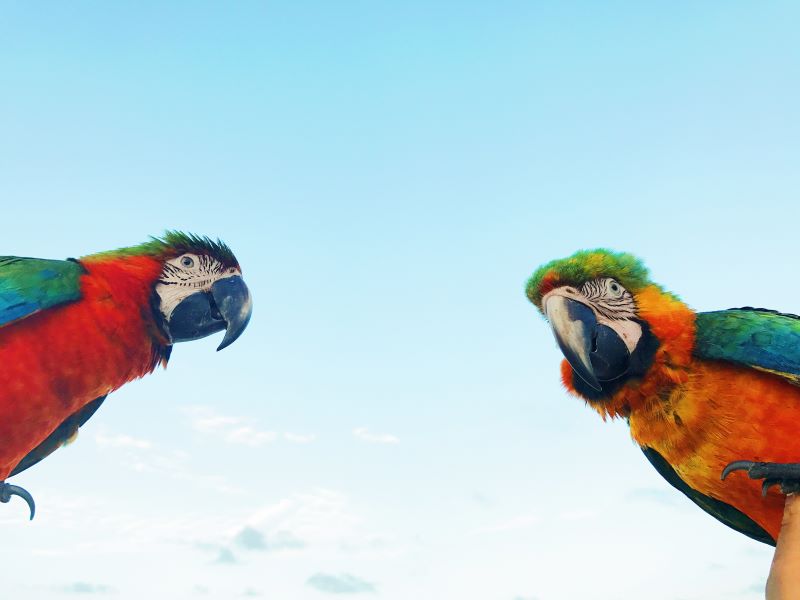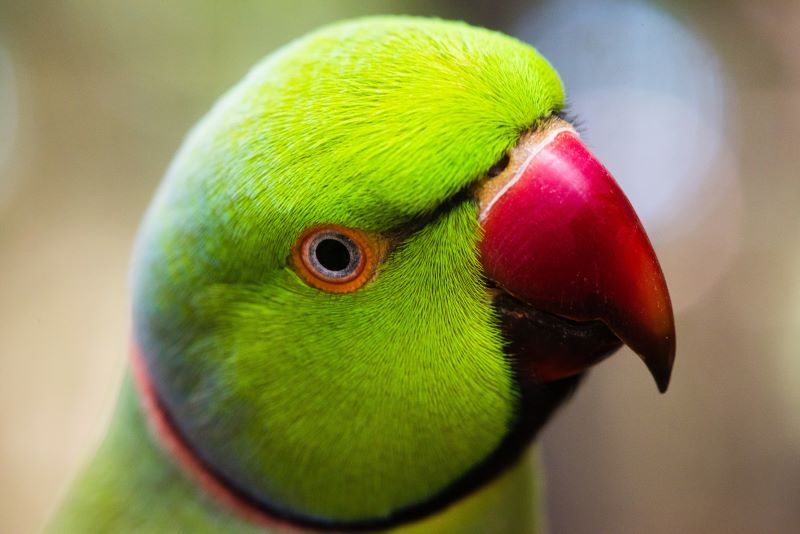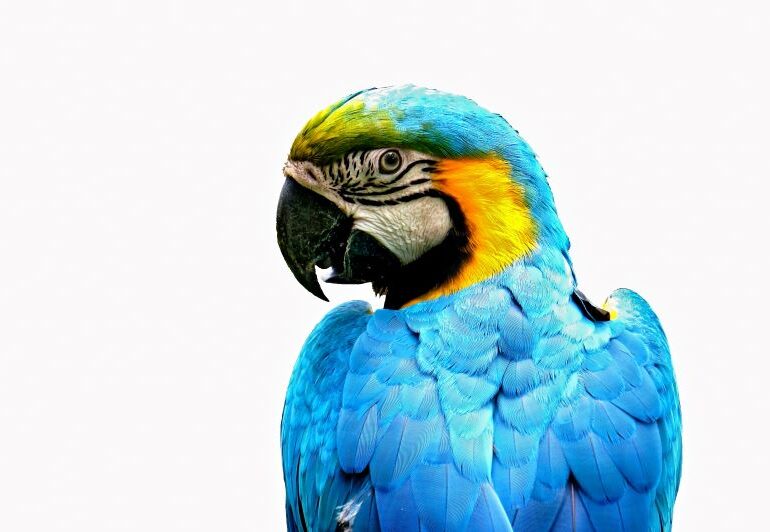As more people become aware of the significance of proper nutrition for birds, and as more study is conducted to understand individual birds’ dietary requirements better, understanding of bird nutrition has improved too over the years. Like all other creatures, birds have specific nutritional needs, including the right proportions of minerals, carbohydrates, vitamins, proteins, fats, and water. Food requirements vary significantly across bird species. Brush-tongued parrots are the lories and lorikeets; their name comes from the birds’ specialized tongues, which allow them to eat only lorikeet food. Compared to other parrots, the digestive systems of lories and lorikeets are concise because they consume a moisture-rich diet. Because of this, lories and lorikeets can often feed without causing discomfort by retaining too much food in their digestive systems and having highly loose feces. Therefore, to ensure your lorikeets’ happiness, use a bird feeder whenever you feed them.
What Kind of Lorikeet Food Should Your Bird Eat?
All too frequently, people think their birds are getting proper nutrition when they are giving them the wrong things. Lack of a proper diet is a leading cause of illness in birds. Lories and lorikeets need good lorikeet food to thrive. If you are considering getting a bird as a pet, it is essential first to learn what food is best and which is the right choice for a bird feeder.
When foraging in the wild, lories and lorikeets consume a diet of nectar and pollen. They also eat softer fruits, berries, flowers, and buds. In the wild, they do not often consume seeds.
It is possible to provide lories and lorikeets with a healthy diet without relying on natural sources of nectar and pollen, thanks to the abundance of high-quality, commercially accessible alternatives. These diets are challenging to manage as a source of nourishment because of their high sugar content, which leads to quick deterioration once combined with water. These items should be provided at least twice daily, preferably with a new blend at each feeding. Stool infections caused by yeast and bacteria are a risk for lories and lorikeets that feed on contaminated food, so ensure you only buy high-quality lorikeet food. Several pelleted diet brands on the market may be provided to lories and lorikeets without ill effects. When fed a pelleted diet, their feces become more solid.

Is It Indicated to Feed Them Fruits and Vegetables?
Every day, in addition to nectar replacement or pellets, you should provide a wide choice of chopped fruits. It is best to keep fruits and veggies away from the nectar; they should only sit out for up to two hours, even if you place them in a bird feeder. You can encourage your bird to eat a wider variety of foods by reducing the amount of one fruit it is given or temporarily eliminating it from its diet if you notice it prefers just one. Also, you can buy bird food to ensure that your bird eats all the necessary nutrients.
A lory or lorikeet’s diet may include little bits of shredded, sliced, or finely diced vegetables, although this should be a manageable portion of its meals. Vegetables like icebergs or head lettuce and celery that are pale because of their high water content are not recommended because they lack nutritional value. Never feed avocado to a bird because of the risk of toxicity. Before being given to a child, all fruits and vegetables must be adequately washed to eliminate pesticides or other toxins. You should see a vet if you need help with your bird’s nutrition or health, deciding which type of lorikeet food you should buy.
Moreover, the availability of potable water is an absolute need, and bottled water is an option if the water from your tap is not drinkable. A bird feeder should be washed daily in hot, soapy water and then rinsed entirely before being used again. The water bowls of lories and lorikeets are often used for bathing, and the cleanliness of the dishes requires regular refilling.
Which Are the Benefits of a Bird Feeder?
1. Seeing Your Favorite Birds by Feeding
The most apparent advantage of providing food for birds is the pleasure we may have in watching them. Many people who like watching birds usually create “yard lists” to keep track of the many species that frequent their backyards, such as hummingbirds, lorikeets, sparrows, woodpeckers, chickadees, and other specialties. Birds bring various colors, sounds, and antics that avid backyard birders may appreciate, but there is much more to enjoy when you feed them. Therefore, using a bird feeder in which you can buy bird food may help you see more types of birds. Take, for example, the lorikeets. You will have better chances of seeing more of them if you provide them with lorikeet food. Is it not amazing to watch nature in its proper form?

2. Education
Everyone, regardless of age, may find something to learn by engaging in the action of feeding lorikeets using a unique feeder. Altering the styles of your feeders and the types of lorikeet food you provide for them can help you learn more about the birds that visit your yard. However, watching the birds will also teach you about the behaviors, identifications, personalities, and other aspects of the local avifauna and how birds adapt to the changing seasons.
3. Interact with Nature
Many city dwellers who like birds do so because they provide a unique opportunity to engage with wildlife up and personal via their bird feeder. People with mobility issues, the elderly, and youngsters may all benefit from this kind of introduction to the outdoors. Using the appropriate feeder and the best lorikeet food will make all the birds want to be friends with you.
4. Be Helpful
Aside from the apparent advantages to backyard birders, bird food also helps birds by providing them with an alternative to habitat loss and the resulting loss of natural food sources. Even though birds lose refuge, nesting sites, and raw food supplies when houses are constructed and landscaped, these losses may be mitigated with careful feeding and bird-friendly landscaping.

